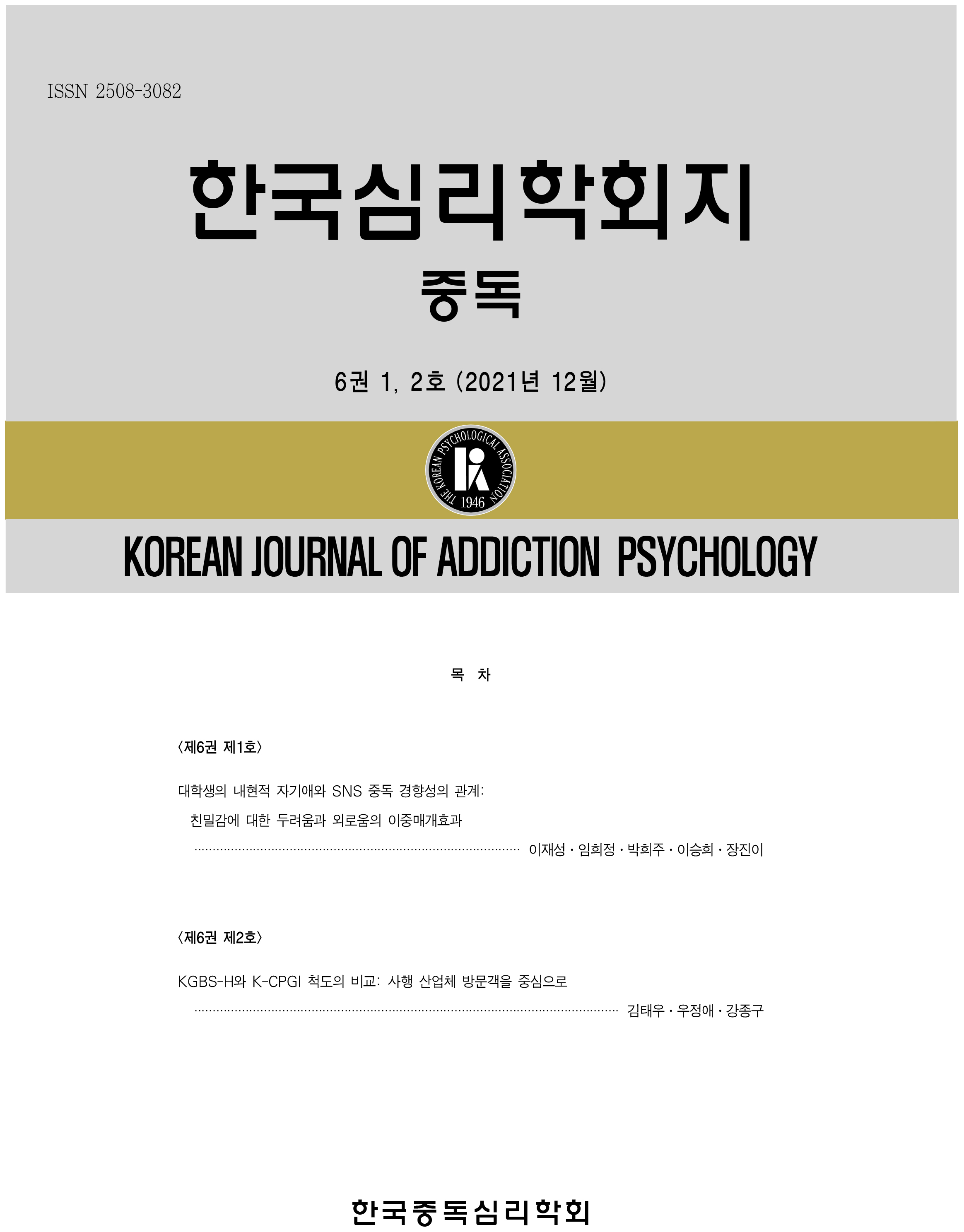Korean Journal of Addiction Psychology
- P-ISSN2508-3082
- E-ISSN3091-6054
 ISSN : 2508-3082
ISSN : 2508-3082
Vol.2 No.2
Abstract
Recovery from gambling addiction is to change attitudes, beliefs and habits of life beyond stopping gambling, and spirituality functions as a core element of this process. Spirituality not only motivates recovery, but also helps to improve interpersonal relationships and maintain recovery. However, in the field of addiction, the concept of spirituality has not yet been clearly defined. This study examined the definition of spirituality from the perspective of East and West, and also examined the effects of spirituality on recovery based on the experiences of people recovering from gambling addiction. In addition, this study examined the specific spiritual interventions that can be applied to the early and maintenance periods of recovery. In the early recovery period, attending GA, living a life of faith, finding meaning and purpose of life, and loving-kindness and compassion meditation may be appropriate interventions. During the maintenance period, attending GA, finding meaning and purpose of life, serving others, mindfulness, loving-kindness and compassion meditation may be appropriate. Attending GA is considered to be an important spiritual intervention in the overall recovery process of gambling addiction.
Abstract
The purpose of this study was to conduct delphi survey to experts on Internet addiction and consider their views and deduct their agreement on whether to develop an alternate term for 'Internet addiction' or continue to use the same term. The first draft of the delphi survey was developed with help from National Information Society Agency who synthetically establish policies on Internet addiction. The delphi analysis was conducted over two times to 20 specialists on Internet addiction. SPSS 21.0 program was used for data analysis to get the mean and standard deviation values for each survey question. CVR(Content Validity Ratio) values for each question were calculated using the formula for internal validity that Lawshe(1975) has suggested. As a result, most of the delphi subjects agreed to use the same term 'Internet addiction'. The next most common opinion were to replace the term with 'Internet heavy use' followed by the term 'Internet overdependence'. These results have significance that they can be used in future research on Internet addiction and establish prevention or rehabilitation services.
Abstract
The objective of this research was to examine effects of an Integrative Approach Group Counseling Program. Participants consisted of 24 youth who showed high level on internet addiction in pretest, and they divided into two groups: one for experimental group of twelve, the other for control group of twelve. In order to evaluate the effects of the program, an experimental group was exposed to the program and a control group without exposure to the program were compared. The program was administered over eight weekly sessions, each session lasting seventy minutes. The Self-Control Scale, Spirituality Scale, Internet Addiction Scale were used in a pretest, posttest, and follow-up test. As the result of statistical analysis, t test, the treatment group showed a significant statistically increasing degree of self-control and spirituality, decreasing internet addiction level. The results of this research indicated the positive effects of an Integrative Approach Group Counseling Program on self-control, spirituality, and internet addiction.